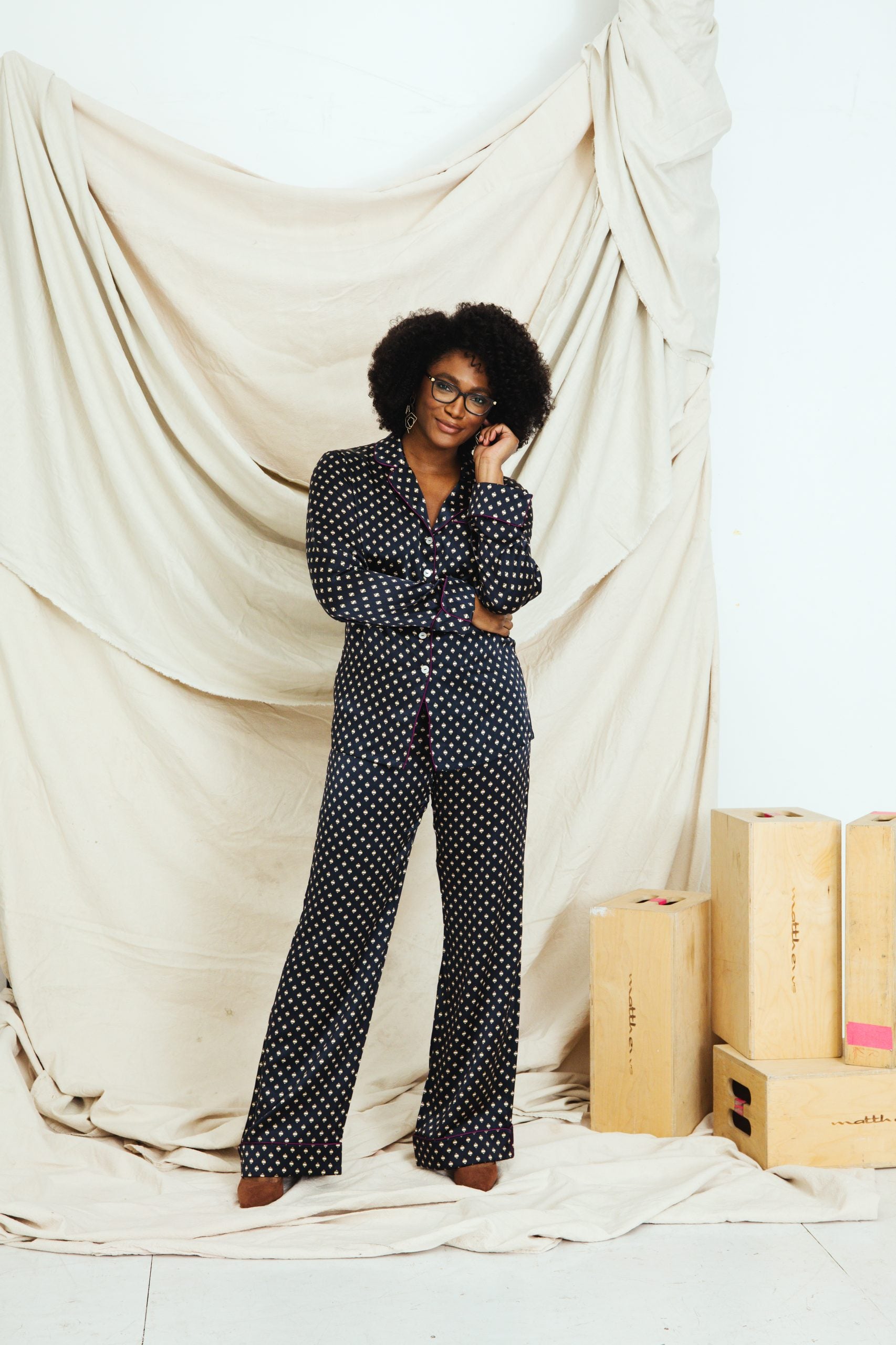
“I do think it’s time for a rebrand as the saying goes,” Cora Harrington tells me over Zoom.
If you’re on X, the social media platform formerly known as Twitter, and engage with tweets about fashion, it’s likely you’ve seen her around. Maybe it was a thread extolling the virtues of wool dryer balls over dryer sheets. Or it was a tweet railing against relying on companies like Shein. Whatever it was, there’s a high probability that you’ve come across content attributed to the username @Lingerie_Addict as Harrington consistently attains virality. However, she’s increasingly contemplating when to change direction.
The handle comes from her second career. After graduating college and building a career in the nonprofit space, she eventually ran a statewide crisis hotline for violent crime victims. Harrington then struck out on her own, dedicating her attention to her small but growing blog, initially called Stockings Addict. She later rebranded the site to The Lingerie Addict and ran it for 14 years, becoming the go-to resource for intimate apparel online. She built the majority of her following online through that brand. She also published the book In Intimate Detail, a guide to lingerie that prizes both size and gender inclusion. Harrington’s status as a Black queer woman often means her own perspective includes those that are typically forgotten. Two years ago, she decided to quit.

“I was worried as I was building up to closing it, that I would miss it and that I might regret it,” Harrington says now of the move which was covered by the New York Times among other outlets. The site’s archive remains online and people still use it as a resource. “It had become such a part of my identity, both personally and professionally, in a way I hadn’t been aware of until I stopped doing it. For the first six months, I felt kind of adrift, where I wasn’t quite sure what I was doing or what was next. I didn’t even know what I wanted to do.”
So, she went back to school.
Now Harrington, who initially built herself as an educator online around intimate apparel, is a year into a graduate degree in the fashion and textile studies program at the Fashion Institute of Technology. Earlier this month, she presented her research at the Unravelling Fashion Narratives symposium at Parsons School of Design. Although she will always retain her knowledge of the intimates niche, she has effectively left the market and is no longer keeping up with what brands are doing. Instead, she is considering a new direction, focusing on fashion in a broader sense. So, as she’s no longer a lingerie addict, she may need to switch her online persona.
“Now, being in [school], it really brings together a lot of the things I enjoyed about The Lingerie Addict: the cultural commentary, the societal commentary, the history of things, how they are made, and getting into that more depth in the program,” she says, explaining that she hopes her next step will involve some degree of educating the public. “It’s very important to me that people learn about this space and I do believe that despite the ornery, rude people online, for a lot of folks, it really helps to shift their perspective and that’s what gets me excited.”
Online, the researcher has joined a group of accounts, including Rian Phin, Lakyn Carlton, and others, that provide audiences with fashion-specific knowledge. They demystify fabrications, cuts, and costs in a world that can often seem inexplicable. She often finds herself weighing in on a variety of viral topics in a market that’s become overcrowded with voices.

“I think it’s increasingly important to distinguish between fashion influencers and fashion experts because I think the divide between those things has gotten even larger,” she says. “It’s so clear to me that there are a lot of people who don’t know [what they’re talking about] or who are clearly cribbing notes from other people and I just think that’s really sad and unfortunate.” So, to counter that, she’s often injecting nuance and depth into the discourse, typically reframing conversations from being centered around the fashionable endpoint to the less-discussed origins.
“One of the things I always come back to is the fact that all of our clothes are made by people,” she points out. “As Temu is taking off and there’s this absolute love affair that people have with Shein, I think it’s increasingly important to emphasize that there are actual people putting these things together. So, when you go on one of these sites and you get a shirt for a dollar and some pocket lint, how much did the person who made it get paid?” In a world of overconsumption and wanting to have a new look for every Instagram post, it can prove a dangerously thorny and frankly unsexy prompt, but ultimately it’s a necessary one.
Harrington’s inclinations to critique the industry by highlighting individuals on the margins are still present. She has noticed that there is a certain disdain within academia for historians who are self-taught. Collections, contributions and artifacts are being kept out of the canon simply because the researchers doing the collecting did not attend grad school. She points to Lois K Alexander-Lane, who founded the Black Fashion Museum in 1978, as an example. After it closed in 2007, the museum’s pieces were eventually donated to the Smithsonian Museum Conservation Institute.
“At the time [Lois] was doing this work, because she wasn’t an academic and because academics didn’t think the work she was doing was important, her work was not given the respect it’s given today,” Harrington points out. She notes similarities to the lack of scholarship around fetishwear, attire, and subcultures. “That’s very much an example of what I am talking about.”
That type of gatekeeping is something she is intent on helping to at least begin to shift. “The space is more homogenous than I think it has to be and we should do better.”







